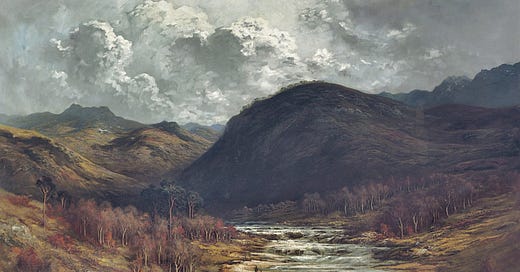The environment that warped our brains
Why our perception of other people—and of their minds—is unreliable.
This week I continue my write-a-book-while-writing-a-newsletter project. Next week I plan to set the book aside and write something more topical, but first I wanted to close out the chapter I started two weeks ago. If you missed the first two installments of the chapter, you can read them here and here—or, instead, rely on this handy one-paragraph encapsulation of the story so far:
Cognitive empathy seems to be a natural endowment. That is: natural selection built into our brains a tendency to theorize about what’s going on in other people’s minds. However, natural selection also seems to have inclined us to misread people’s minds in some situations. For example: heterosexual men tend to overestimate how sexually attracted to them women are; and in certain situations people overestimate the likelihood that a stranger wants to harm them. These two tendencies make sense as “adaptations,” as tendencies built into the brain by natural selection because they helped our ancestors get genes into ensuing generations.
Now our story resumes:



